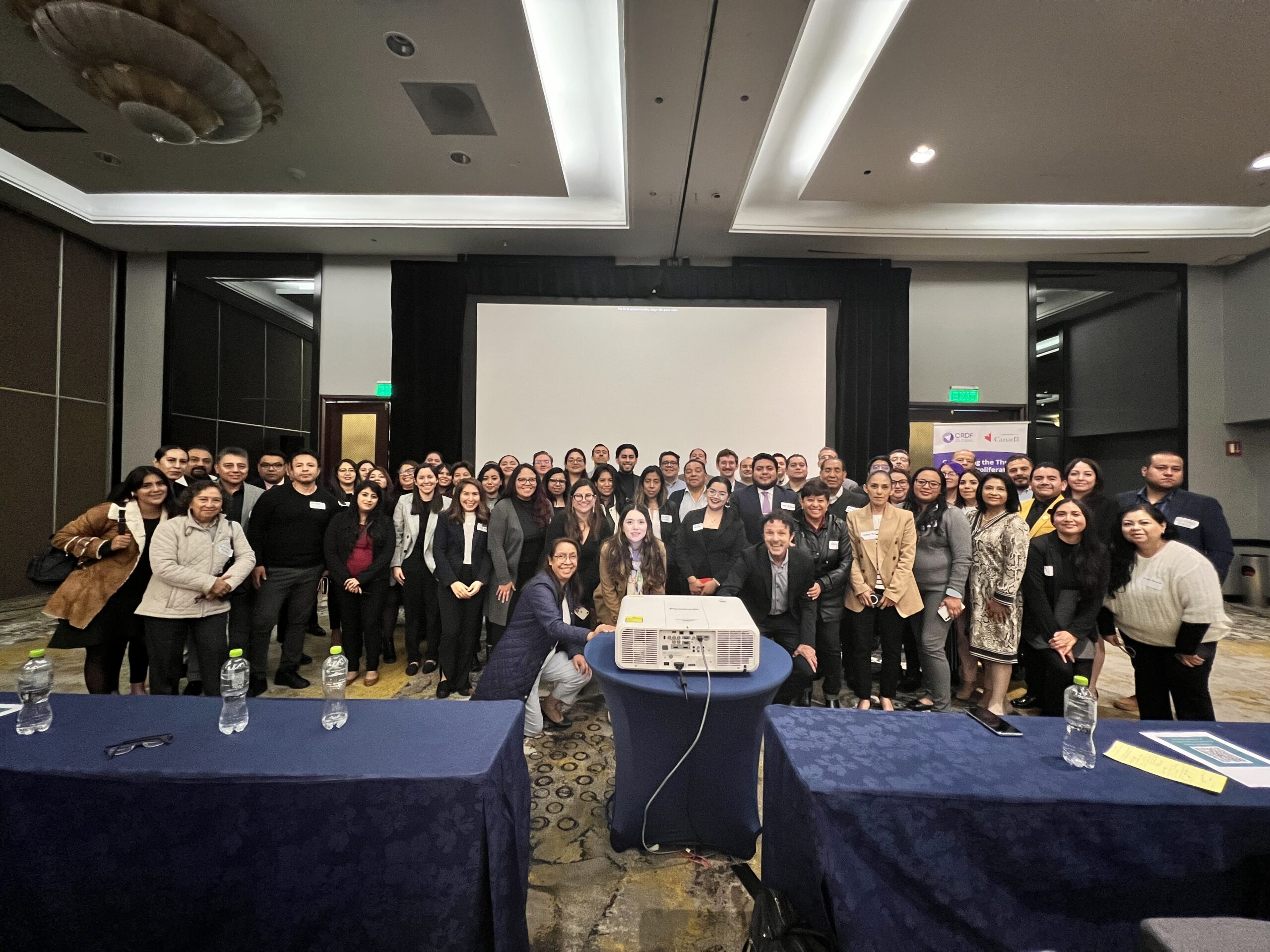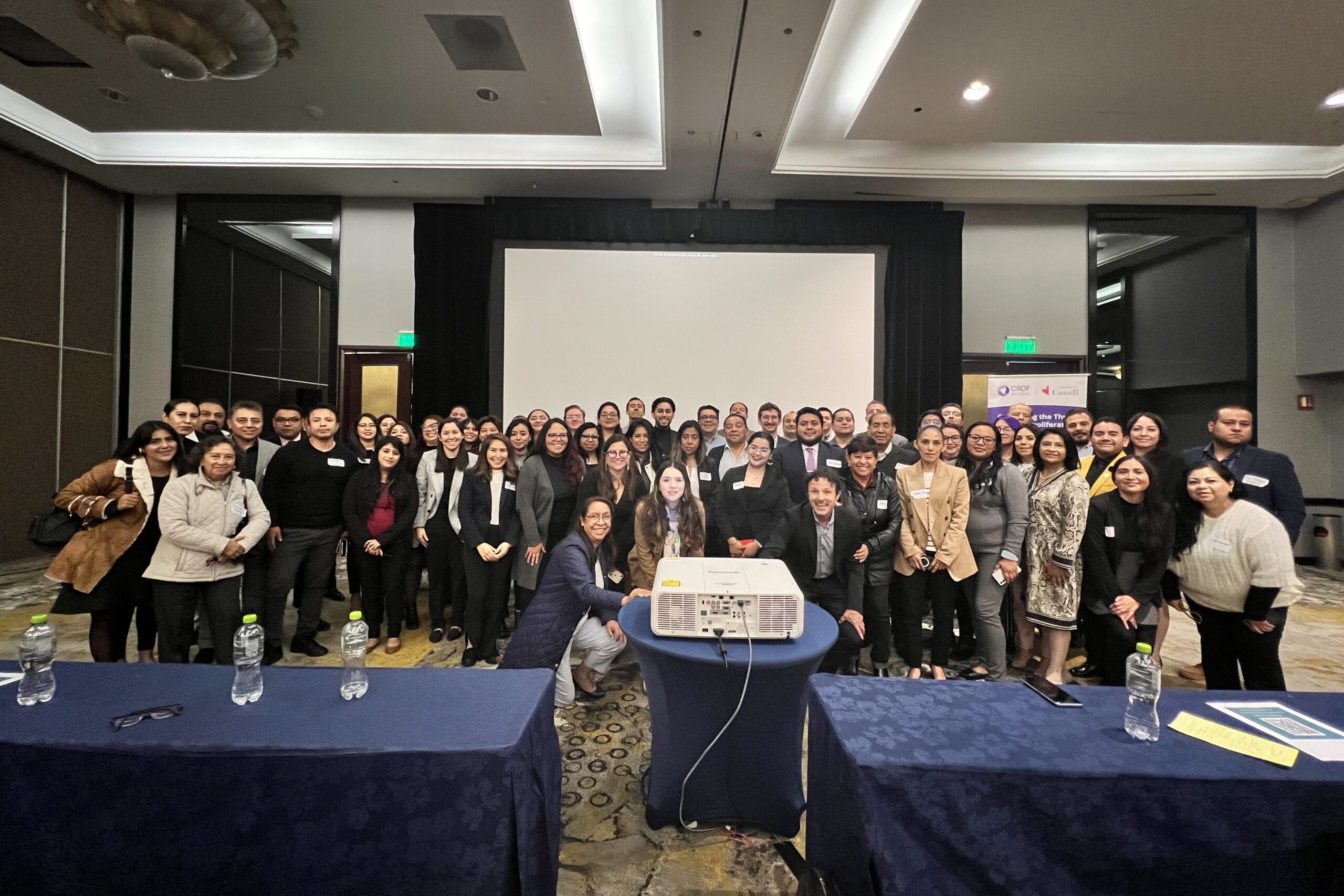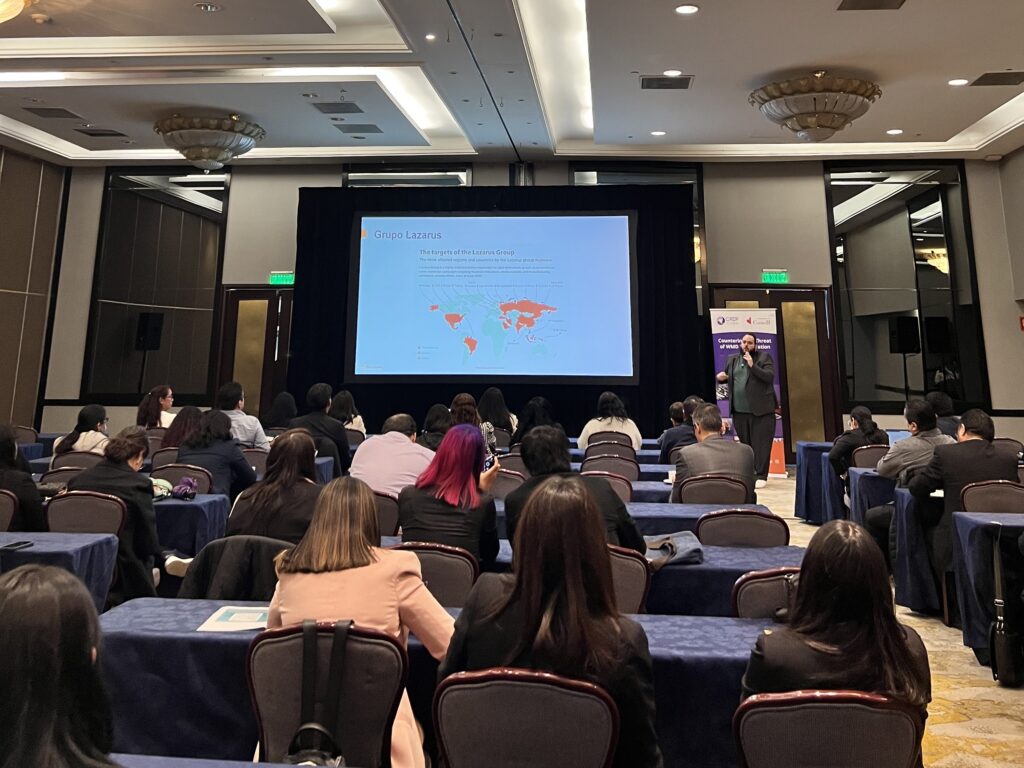CRDF Global Supports the Association of Certified Financial Crime Specialists (ACFCS) Annual Workshop on Money Laundering, Fraud, and Financial Crimes

To support the capacity of Latin American financial institutions’ ability to counter United Nations (UN) Security Council Resolution (UNSCR) sanctions evasion techniques, ACFCS convened public and private sector professionals from around the region for an in-person conference in Mexico City, Mexico, on September 26, 2024. With the generous support of Global Affairs Canada’s (GAC) Weapons Threat Reduction Program (WTRP), CRDF Global partnered with digital asset expert Mr. Caio Motta from Chainalysis to present on Sanctions Evasion with Cryptocurrencies and AI and Cryptocurrency in Latin America. The conference’s other topics included “Artificial Intelligence and Compliance: How to Adapt Controls to a Technologically Unexplored Reality and “Risk-Based Approach for a Solid Cyber Compliance Environment.” Conference attendees gained a deeper understanding of the complex money laundering techniques, identifying and responding to cryptocurrency laundering threats, emerging threats related to AI, red flags associated with illicit actors
Representatives from the financial institutions, banks, monetary authorities, and private agencies of Mexico, Chile, Panama, Guatemala, Peru, Nicaragua, Ecuador, Colombia, Dominican Republic, and Argentina attended the event.

Rising Threat of Financial Crimes in Latin America
In recent years, Latin America has seen a significant increase in the threat of financial crimes, including money laundering, cyber fraud, and other illicit activities. The region’s growing integration into the global economy has made it more susceptible to international financial crime networks. Additionally, the rapid adoption of technology and digital financial services has created new avenues for cybercriminals to exploit. These developments have underscored the need for enhanced collaboration between public and private sectors, as well as the necessity for professionals in the region to remain continually trained and adaptable to effectively address these evolving threats. CRDF Global is responding to these threats and vulnerabilities by continuing to provide region-specific workshops and guidance materials to public and private sector professionals from financial institutions to equip them with the tools necessary to safeguard their jurisdictions from these vulnerabilities and threats.

Mitigating Financial Crime Risks: Addressing Evolving Threats and North Korean Cybercrime
To deliver a dynamic session, CRDF Global worked with digital assets experts from ACFCS and Chainalysis to build an impactful agenda that featured a variety of sanctions, cryptocurrency, and cybersecurity topics targeted for the public and private sector audience throughout the Latin America region.
Mr. Gonzalo Vila, ACFCS Latin America Director and event moderator, gave opening remarks, during which he highlighted the importance of the training on sanctions, anti-money laundering, and financial crimes and the relevance to the region. He also reiterated the importance of building the capacity of financial institutions across Latin America.
Following the opening remarks and introduction, Mr. Caio Motta from Chainalysis detailed how cryptocurrencies are used to evade sanctions, particularly by countries like North Korea, Iran, and Russia. He also discussed illicit cryptocurrency activities, highlighting that 60% of crimes involving mixers, bridges, and exchanges are sanctions-related. Mr. Motta emphasized the sophistication of threat actors and their history of targeting financial institutions through phishing and malware attacks. He specifically discussed North Korean cryptocurrency hacks and shared best practices for personal cybersecurity awareness, including using strong, unique passwords and a reputable password manager.
The second session from Chainalysis was on AI and Cryptocurrency in Latin America. Mr. Motta discussed the adoption of cryptocurrency in Latin America and how it is driven by financial instability, remittances, and inflation (notably in Argentina and Venezuela). He explained that while cryptocurrency adoption grows, risks like Ponzi schemes and money laundering gain prevalence. Mr. Motta concluded the session by talking about the illicit use of cryptocurrency in Mexico. He emphasized that Mexico ranks third globally in cryptocurrency transactions, with 81% tied to remittances under $1,000. Though the use of cryptocurrency in illicit activities (drugs, fraud, and money laundering) remains a concern, only 0.34% of all cryptocurrency transactions are illicit.
Next, subject matter expert Dr. Miguel Tenorio from BST Global Consulting discussed how AI can improve compliance processes by automating tasks, identifying fraud, and reducing costs. He highlighted the advantages of AI, such as enhanced risk detection and real-time regulation enforcement, but also mentioned the disadvantages, including bias, lack of transparency, and vulnerability to cyberattacks. Dr. Tenorio stressed the importance of careful regulation, human oversight, and ethical programming when using AI for compliance. He also mentioned the utility of AI in mitigating risks such as money laundering and WMD proliferation.
As a final session of the event, subject matter expert Mr. Juan Antonian Barragan Cabral from Intrade Smart Law Firm delivered a comprehensive presentation on the role of Artificial Intelligence in Compliance. He stressed the increasing importance of cybersecurity due to rising digital crime. Mr. Cabral highlighted the need for businesses to invest in encryption and technological solutions to ensure compliance and protect sensitive information. Mr. Cabral also discussed cyber compliance best practices, emphasizing the importance of prioritizing cybersecurity to mitigate future risks and implementing international standards for information security, reinforcing the main takeaways of his presentation.
The event received positive feedback from participants, who found the sessions, interactive exercises, and numerous case studies to be valuable in enhancing their ability to safeguard their jurisdictions against the increasing threats posed by cryptocurrency and other cyber threats. Many attendees expressed interest in attending further workshops that delve deeper into monitoring cryptocurrency transactions, cybersecurity, and money laundering.
Aytaj Gasimova is a Project Associate on the UN Sanctions Compliance team at CRDF Global.



